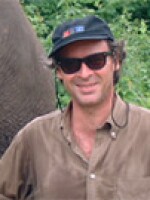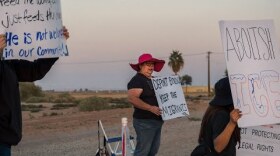LYNN NEARY, host:
This is MORNING EDITION from NPR News. I'm Lynn Neary.
STEVE INSKEEP, host:
And I'm Steve Inskeep. Good morning.
Thailand's new military rulers have banned political party meetings and other political activities. They say they want to maintain peace and order.
That announcement follows the coup that removed the elected prime minister, Thaksin Shinawatra. Thailand's king says he wants military orders to be respected and government offices have reopened.
In a moment we'll learn how this coup looks from the vantage point of Thailand's tourist beaches. We begin with NPR's Michael Sullivan, who explains why Thais, so far, have taken his coup calmly.
MICHAEL SULLIVAN: Thais are used to coups. They've had about 20 - including Tuesday's - since the country became a constitutional monarchy in 1932. But this one, its leaders say, is different, and many analysts here seem to agree.
Mr. KAWI CHUNGITAWAN(ph) (Senior Editor, The Nation, Bangkok): It's difficult to endorse a coup in a democracy. But in the current Thai situation it is a necessary evil to remove in short terms the political stumbling block that has stymied the Thai economy and politics.
SULLIVAN: Kawi Chungitawan is senior editor of Bangkok's influential newspaper, The Nation, and a long-time critic of Prime Minister Thaksin.
Thaksin was first elected five years ago in a landslide, and won two more elections since. But his critics accuse him of corruption and of weakening the country's democratic institutions, charges Thaksin denies.
The coup may look bad says the nation's Chungitawan. But a mid-course correction for Thai democracy, he says, was long overdue.
Mr. CHUNGITAWAN: Thailand has been what I would describe as moving toward democracy but with a lot of hurdles. It has, from time to time, stepped two backward in order to move one step forward. And at the moment it's still struggling to establish high-quality democracy.
SULLIVAN: The military leadership has pledged to help the country toward that goal by supervising the writing of a new constitution, one it says will make it more difficult for political leaders to abuse the system. The military has also promised new elections in a year's time.
But none of this, says Thaksin's former spokesman Jakrapob Penkair, makes what happened Tuesday right.
Mr. JAKRAPOB PENKAIR (Former Spokesman for Thai Prime Minister): It is a sad day. Democracy is when the public has the final say in the administration of a country. So what happened to Thailand couldn't be construed as democracy.
SULLIVAN: Many foreign governments, including the U.S., seem to agree and have expressed their disappointment with the coup, a coup that has made Thailand the second Southeast Asian nation after the Philippines to forcibly oust a democratically elected leader.
Mr. SURIN PITSUWAN (Democratic Party, Thailand): We are not trying to defend the coup. A coup is a coup. It's unacceptable. We cannot condone, we cannot agree.
SULLIVAN: Surin Pitsuwan is a former foreign minister and a leader of Thailand's democrat party, staunch opponents of the deposed prime minister - a party which never figured out a way to defeat Thaksin at the ballot box. He admits the coup may be a step backward for Thai democracy. But democracy is messy, he says, as is the marriage of democracy and development in nations like Thailand.
Mr. PITSUWAN: The challenge of globalization itself is a problem for many of these emerging democracies, because in order to be competitive you have to put your house in order. In order to put your house in order you have to sacrifice a certain level of democracy or civil liberties. But that is a contradiction. So leaders have to be very, very effective, persuasive and at the same time very humble and tolerant. And that's very difficult to find.
SULLIVAN: Humble and tolerant are not words used to describe the deposed Prime Minister Thaksin. But even some of his critics would agree he was persuasive and effective, at least at the beginning of his five-year rule, a period marked by strong economic growth and, for a time, relative political stability.
Michael Sullivan, NPR News, Bangkok. Transcript provided by NPR, Copyright NPR.






